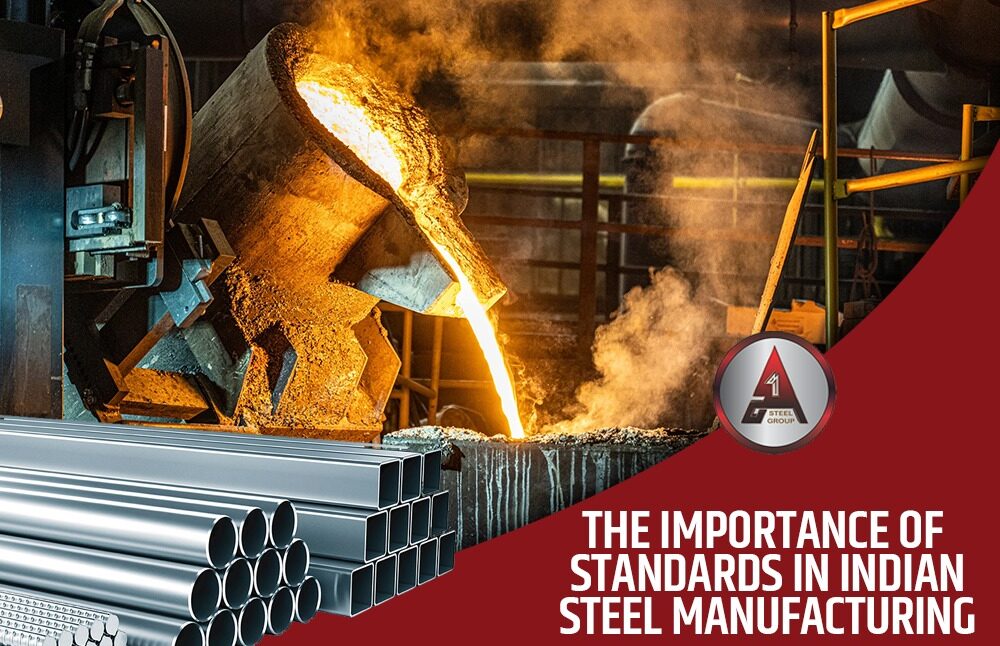The steel industry in India has grown rapidly over the past few decades, playing a crucial role in the country’s infrastructure and industrial development. With the rise in demand, maintaining quality standards in steel production has become more important than ever. Consistency in quality ensures not only the durability of structures but also the safety and reliability of various projects that rely on steel products.
Why Standards Matter
Maintaining standards in Indian steel manufacturing is essential for ensuring the quality, strength, and reliability of the products. Steel is widely used in construction, automotive, and machinery industries, where even a small compromise in quality can lead to significant safety risks. Without consistent adherence to these standards, the risk of defects, failures, and costly repairs increases. Quality benchmarks help ensure that manufacturers meet the expectations of their clients and the broader industry.
For steel manufacturers in India, these standards offer a framework for uniformity, allowing businesses to produce steel products that meet both domestic and global requirements. This is especially important for those aiming to compete internationally, as adhering to recognized standards helps them ensure their steel products are up to par.
Role of Regulatory Bodies
Various regulatory bodies in India, such as the Bureau of Indian Standards (BIS), work closely with the steel industry to ensure that guidelines are followed. BIS sets standards for different types of steel, covering everything from raw materials to finished products. For steel manufacturers in Bangalore and across the country, compliance with these standards not only helps protect the end user but also ensures business credibility. Following the guidelines provided by these regulatory bodies also helps steel factory manufacturers avoid legal complications.
The introduction of these standards and their application across different regions, such as in Bangalore steel company operations, enhances the overall quality of the industry. Standards in Indian steel manufacturing are essential to achieving uniformity, especially in a diverse country like India, where different regions may have varying levels of expertise and technology.
Adapting to Technological Advancements
With advancements in technology, steel product manufacturing has become more sophisticated. Adopting new methods and techniques in production allows manufacturers to increase efficiency and improve the quality of steel. However, these innovations need to align with the existing standards to ensure that the products continue to meet industry benchmarks.
As structural steel manufacturers embrace new technologies, maintaining strict adherence to quality standards ensures that the end products are safe for construction projects. This adherence is particularly important in sectors like infrastructure development, where steel’s strength and durability are critical.
Ensuring Sustainability in Steel Production
Sustainability is another key factor driving the importance of standards in steel product manufacturing. As the world moves towards more eco-friendly practices, steel production must adapt to meet these new demands. Standards ensure that steel group manufacturers adopt sustainable practices, reducing the environmental impact of their operations.
This includes minimizing waste, optimizing resource use, and ensuring that production processes do not harm the environment. By adhering to these standards, Indian steel manufacturers can contribute to global efforts to reduce carbon emissions while continuing to produce high-quality steel products.
CONCLUSION:
The importance of adhering to standards in Indian steel manufacturing cannot be overstated. Quality standards provide a framework that ensures the safety, reliability, and sustainability of steel products, whether produced by large corporations or smaller businesses. As the industry continues to grow, these standards will be essential in maintaining India’s position as a leading steel producer.
For companies like A One Steel Group, adhering to these standards is not only about compliance but also about fostering trust with clients and consumers, ensuring that every steel product manufactured meets the highest expectations in terms of safety, quality, and performance.
Click here to know more about “Forging Excellence: Quality Standards in the Indian Steel Industry through Certifications & Accreditations”



